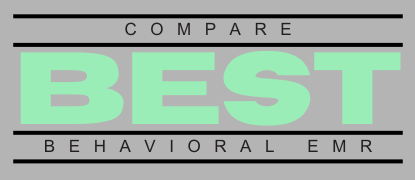Running a successful behavioral health practice today means navigating complex patient needs, regulatory requirements, and operational challenges. While there are numerous tools available, one stands out as particularly impactful: integrated EMR systems. Behavioral health EMR solutions not only streamline administrative tasks but also enhance patient care and outcomes, making them essential for practice growth and efficiency. But how exactly does an integrated EMR system unleash these advantages, and how can you choose the right one for your practice?
What are Integrated EMR Systems and Why Do They Matter?
An integrated EMR (Electronic Medical Record) system consolidates clinical documentation, practice management, revenue cycle management (RCM), and patient engagement tools into one cohesive platform. For behavioral health professionals, this integration offers a single source of truth for patient information, significantly reducing the risk of errors and inefficiencies that occur with fragmented systems. More importantly, an integrated behavioral health EMR empowers clinicians with comprehensive patient data, enabling more informed, personalized care decisions.
Top Benefits of Integrated EMR Systems for Behavioral Health Practices
Enhanced Patient Outcomes and Quality of Care
Integrated EMR systems simplify the process of collecting and analyzing patient data. Clinicians can easily access patient histories, treatment plans, medication information, and progress notes in one place, resulting in:
- Improved accuracy of diagnoses and treatment planning
- Faster and more effective communication among clinicians and support staff
- Streamlined care coordination, allowing for better patient outcomes
In fact, research from the National Institutes of Health (NIH) suggests integrated EMR systems can enhance patient safety and clinical outcomes by supporting clinical decision-making and reducing errors in patient records.
Operational Efficiency and Reduced Administrative Burden
Behavioral health EMR platforms automate routine administrative tasks like scheduling, billing, and insurance verification, freeing up valuable time for your clinical team. This increased efficiency can lead to:
- Reduced overhead costs
- Improved staff productivity and satisfaction
- More time spent with patients, enhancing both care quality and patient satisfaction
Optimized Revenue Cycle Management (RCM)
A fully-integrated EMR system includes robust revenue cycle management features. This helps behavioral health practices:
- Reduce denials and improve claims accuracy
- Enhance revenue collection and cash flow
- Gain real-time visibility into financial performance
For more details on optimizing revenue cycles, you can explore our related article on “Maximizing Revenue with Integrated RCM Solutions.”
Choosing the Right Behavioral Health EMR System
With many behavioral health EMR options available, finding the best fit for your practice requires careful consideration. Here are key factors to evaluate when choosing an integrated EMR system:
1. Ease of Use and Clinical Workflow Alignment
Make sure the EMR aligns seamlessly with your clinicians’ workflows, reducing disruption and facilitating faster adoption.
2. Comprehensive Integration Capabilities
Choose a system that integrates smoothly not only internally but also with external systems, such as labs, pharmacies, and telehealth platforms.
3. Strong Data Security and Compliance Measures
Given the sensitive nature of behavioral health data, ensure the EMR vendor adheres strictly to HIPAA guidelines and provides robust data protection measures.
4. Reliable Customer Support and Training Resources
Excellent support and training can significantly impact your team’s ability to fully leverage the EMR’s capabilities.
For more guidance on selecting the best EMR, read our article: “How to Select the Right EMR System for Your Behavioral Health Practice.”
Taking the First Step: Free Practice Analysis
Navigating EMR options doesn’t have to feel overwhelming. Our personalized free practice analysis connects you with behavioral health EMR experts who evaluate your unique needs and recommend the most suitable integrated EMR system for your practice. This step-by-step guidance helps you confidently choose technology that aligns with your goals and enhances patient care.
Conclusion: The Power of Integrated EMR Systems for Your Practice
Investing in integrated EMR systems is no longer an option—it’s a strategic necessity for behavioral health practices aiming for growth, efficiency, and improved patient outcomes. By selecting the right behavioral health EMR, you streamline operations, enhance clinical effectiveness, and boost your bottom line. Ready to get started? Let our experts guide you with a personalized free practice analysis today.
Remember, the right EMR isn’t just about technology—it’s about improving the lives of your patients and the success of your practice.
Meta Description:
Discover how integrated EMR systems can streamline your behavioral health practice, boost patient outcomes, and simplify operations. Get your free analysis today!
